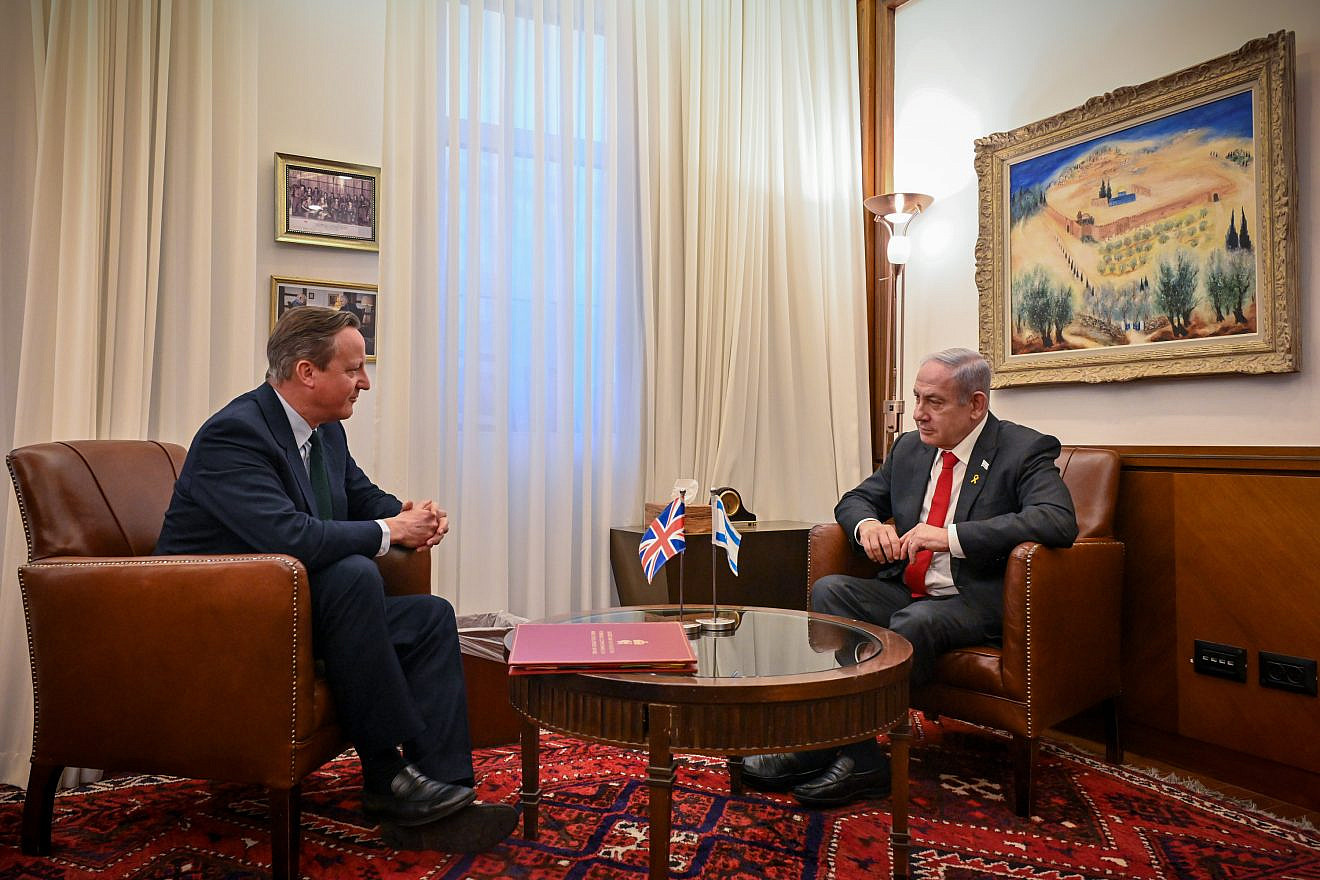Lord David Cameron, U.K. foreign secretary, sparked controversy by suggesting that the United Kingdom might consider recognizing a Palestinian state.
Cameron, a former U.K. prime minister, said during a reception for Arab ambassadors in the British Parliament on Monday that it is important to provide “a political horizon,” so Palestinians “can see that there is going to be irreversible progress to a two-state solution” amid efforts to end Israel’s current war against Hamas.
His comments were met with swift backlash from a string of Conservative members of Parliament, the Independent reported.
Advancing the recognition of a Palestinian state would be like “rewarding Hamas’s atrocities,” said Theresa Villiers, a parliamentarian and former cabinet minister during Cameron’s tenure as prime minister from 2010 to 2016.
Sir Michael Ellis, another member of Parliament, echoed those sentiments, cautioning that such a move could equip “dangerous actors” with the capabilities of a state.
Addressing the House of Commons on Tuesday, Andrew Mitchell, a minister of state in the U.K. Foreign, Commonwealth and Development Office, clarified that there has been no change in U.K. policy and emphasized the need to offer a credible route to a Palestinian state when the timing is right.
“There is no question of rewarding Hamas for the appalling acts they perpetrated” in Israel on Oct. 7, Mitchell said.
Ahead of an upcoming Middle East visit, Cameron outlined the ways the United Kingdom and its allies could increase pressure by considering recognition of a Palestinian state at the United Nations. He stressed the importance of defining what a Palestinian state would look like, believing that this step could make the two-state solution an “irreversible” process.
Husam Zomlot, head of the Palestinian mission to the United Kingdom, welcomed Cameron’s words, which he called a “significant” moment.
Zomlot believes that such U.K. recognition would remove Israel’s veto power over Palestinian statehood, contributing to a more favorable environment for a two-state outcome.
Cameron’s Middle East trip will be his fourth since being named foreign secretary last November.


























